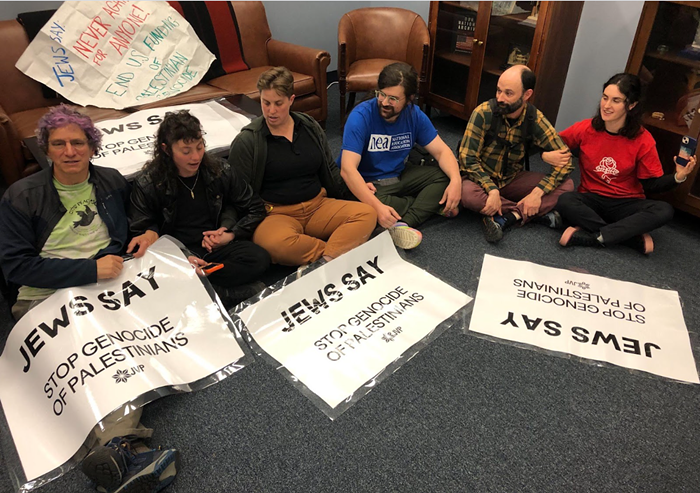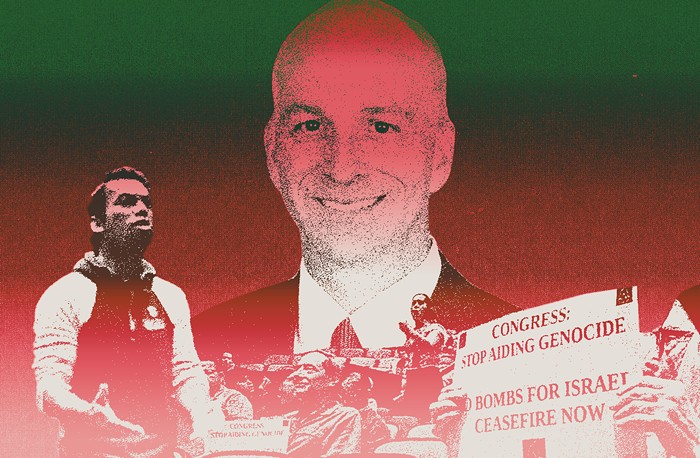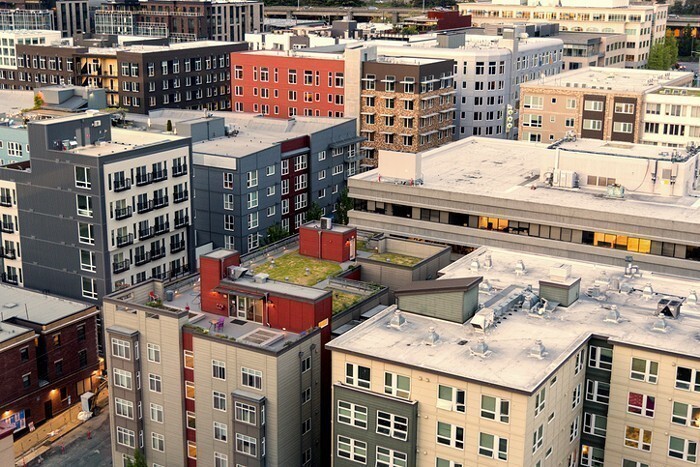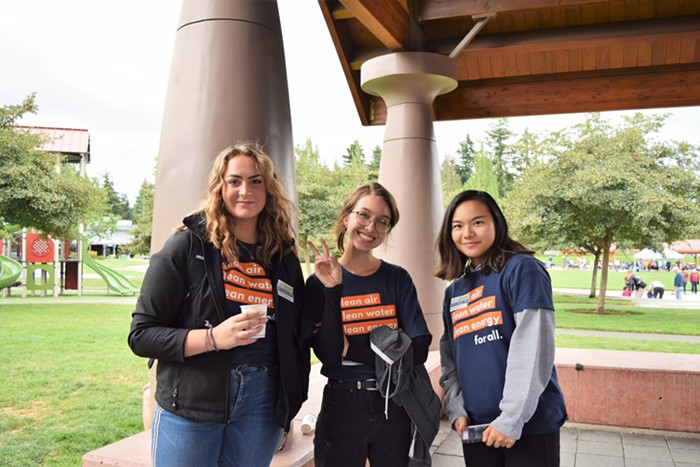
There’s a reason why democratic socialist Rep. Alexandria Ocasio-Cortez’s call for a Green New Deal has caught fire. By harkening back to the days when government action brought us out of the Great Depression, the New Deal policy framing undermines forty years of trickle-down economic philosophies that say “big government” has no role in addressing big problems like climate change. If we’re going to enact climate justice, we’ll have to escape the ideological stranglehold that fiscal conservatism has on our politics and our imaginations.
Nationally and locally, we stand at the crossroads of environmental collapse and public action. Which direction will we go?
Seattle has been here before. In the years leading up to the original New Deal in 1931, Seattle Mayor Frank Edwards begged the Seattle City Council to “join hands in a serious effort to provide relief to the unemployed by pushing for municipal work which will require maximum labor.” Edwards thought public investment in environmental public works could improve the material conditions of struggling Seattleites. He was right. Revenue from the Workers Project Administration and Seattle’s share of the state gas tax funded 55 infrastructural improvement projects that provided jobs to thousands. As groups like Puget Sound Sage, 350 Seattle, and Got Green have pointed out, a Seattle Green New Deal would be just as impactful today.
In the summer months, Seattleites breathe in a toxic haze of smog and forest fire smoke. Working people who can’t find affordable housing near their jobs drive long distances to work and back, pumping carbon emissions into the air. Seattleites of color who live near freeways and major arterials inhale most of the exhaust. Meanwhile, rising sea levels threaten to displace residents of South Seattle, who will then join long-distance motorists in an atmosphere-killing climate loop. Environmental decay shapes the material reality of millions in our region. Citizens need a friend in government to fight back.
The Seattle City Council could correct our current zoning code, which makes apartment buildings illegal in 75 percent of the city, and build public housing developments that comply with green LEED certifications. Ending our relationship with Puget Sound Energy, one of the biggest polluters in the region, would be a step toward bringing our energy portfolio under public control. And if we gave everyone free public transit—or at least gave employers “climate passes” to fund transit passes for working Seattleites—we could decrease our carbon emissions by getting people out of cars.
Why not implement the comprehensive bike network that both Mayor Durkan (and Mayoral runner-up Cary Moon) both campaigned on in 2017? Couldn’t we create car-free eco-districts with loads of social housing and low-carbon footprints in low-income neighborhoods? What about additional public restrooms, signs, and streetlights to encourage more people to explore the city on foot? We could partner with organized labor to do it all with well-paying union jobs. But to do that, we’ll need revenue.
One reason it’s called the Green New Deal is because you need money to make it happen. Seattle should implement congestion pricing, following the city of London, which raised $1.6 billion of revenue with tolls in ten years. We should institute land value taxes and a tax on real estate speculation to discourage developers from building luxury apartments that lay empty but still use energy. The City Council should have the city go into debt to build affordable housing, and also to buy land, then redistribute parcels to non-profit housing providers at a discount.
Seattle should raise taxes on privately owned golf courses, like the 55-acre Sandpoint Country Club, which are unfairly taxed an infinitesimally smaller rates than the property taxes working families have to pay on their homes. Let’s dip into our Rainy Day Fund, as we did during the Great Recession, knowing that the climate crisis presents as much of a threat to our well being as a downturn in the business cycle.
More than anything, we should tax the rich. Our biggest corporations—Amazon, Boeing, Microsoft—also happen to be our biggest polluters. State law may prohibit the city from enacting a tax on large polluters; but nothing but a lack of courage and political will is stopping us from enacting a new Employee Head Tax, or from raising the B&O tax on our largest corporations.
The Seattle Times Editorial Board recently declared that “public policy discussions on [climate justice] continue to be heavy on emotions and light on cost details.” On the surface, pushing progressives to make the best possible case for our proposals is a noble goal. “To avoid a Tim Eyman-style backlash,” the Times cautioned, “policymakers must be transparent about the substantial costs involved [in taking action on] global warming.”
But left-of-center policymakers and activists are tired of fiscal conservative finger-wagging. No matter what we propose, the “Tim Eyman-style backlash” always seems to come. And that’s because the government action needed to enact climate justice offends ideologues who loathe government action of any kind.
Climate change is not “coming.” Climate change is here. Already, people in Africa, Asia, and Latin America are being displaced due to rising sea levels and catastrophic weather events. Into the next century, climate refugees will be the new face of immigration to cities like Seattle. They’ll find a city that did what was possible, did what was necessary, and—as a result—seemed to do the impossible. If we implement a Seattle Green New Deal, those on the way, and those already here, will find a city that is a true sanctuary from the ravages of climate change.
__
Shaun Scott is a Seattle-based author and activist. He is a candidate for City Council District 4, the district comprising the University District, Wallingford, Eastlake, Roosevelt, and Northeast Seattle. He is the author of the book Millennials and the Moments That Made Us: A Cultural History of the U.S. from 1982-Present (Zero Books, 2018).


















